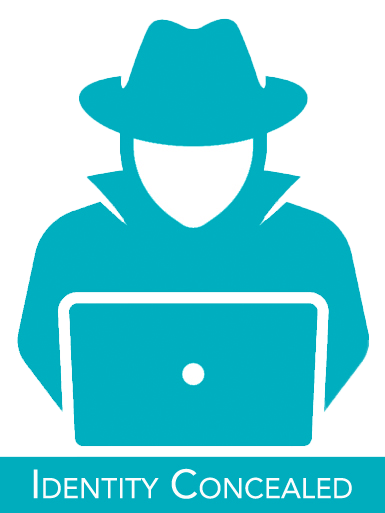How Ethical Hacking Strengthens Cybersecurity and Prevents Data Breach
Would you or your IT team recognize the signs if one or more of your systems had been breached? How much sensitive data could they access prior to detection? How long would your operations be disrupted were an attack to lock you out? Cyber-attacks are a constant risk that affect organizations across industries, and the most effective defense is to anticipate an attack and understand your security gaps before it happens.
Ethical hacking turns the traditional approach to security on its head. Rather than waiting for an attack to occur, organizations engage ethical hackers to simulate real-world threats, uncover vulnerabilities, and reinforce defenses before a breach can occur. This may include penetration testing, vulnerability assessments, and comprehensive security audits that provide critical insights for closing security gaps while ensuring compliance with evolving regulations. Operating within legal and ethical boundaries, ethical hackers adopt the mindset of cybercriminals to proactively identify weaknesses before they’re exploited.
Why Ethical Hacking Is Essential
Cybersecurity risks are universal—whether managing sensitive employee or client data, intellectual property, or financial transactions—and a single security breach can disrupt operations, cause financial loss, and erode client trust. Ethical hackers provide the proactive defense needed to identify weaknesses and fortify security measures before they materialize.
Consider how organizations are leveraging ethical hacking to stay secure.
Sectors with High Data Sensitivity. Healthcare providers, financial institutions, technology companies, ecommerce platforms, and third-party service providers all manage large volumes of sensitive data such as health records, SSNs, addresses, credit card information, IP and email addresses. These sectors are prime targets for cybercriminals, with a breach having far-reaching consequences including fines and fees, regulatory scrutiny, loss of public trust, and operational disruptions. Ethical hackers help identify vulnerabilities in systems, ensuring compliance with regulations like HIPAA and FERPA while uncovering known system security vulnerabilities that could potentially lead to unauthorized access to confidential data.
Highly Competitive and Regulated Industries. Industries such as construction, cannabis, and real estate face complex regulatory environments. But ethical hackers can identify weak points in systems that handle valuable financial transactions, property data, and compliance documents. Strengthening these defenses not only helps businesses avoid costly breaches but also supports business continuity and provides a competitive edge in their respective markets.
Technology and Service-Based Firms. Technology firms and other third-party service providers rely heavily on intellectual property and client data. In a data-driven economy, ethical hackers can ensure those IT systems remain secure, resilient, and compliant with industry standards. Securing client data helps protect business operations, fosters strong client relationships, and supports sustainable business growth.
Strengthening Security with Ethical Hacking
Ethical hackers delve beyond standard security checks by employing advanced testing methods to uncover vulnerabilities often overlooked, simulating real-world cyberattacks to assess how well your systems withstand more sophisticated threats. This process identifies potential entry points in your network, applications, and infrastructure, enabling proactive improvements to your security posture. In addition, ethical hackers help organizations maintain compliance with industry regulations by identifying gaps in access controls, encryption protocols, and overall data protection, reducing the risk of breach and costly penalties.
Integrating ethical hacking into your cybersecurity strategy at key moments enhances resilience and reduces risk. Consider the following critical times to engage ethical hackers.
Before Launching New Systems or Products
Rolling out a new platform, patient management system, or cloud-based service introduces potential vulnerabilities. But ethical hacking identifies security gaps early, ensuring your infrastructure is secured before it goes live.
After Mergers or Major System Upgrades
Mergers, acquisitions, and infrastructure updates often create security blind spots. But ethical hackers assess newly integrated systems to ensure they function securely without exposing sensitive data to cyber risks.
As Part of Routine Security Audits
Cyber threats evolve constantly, making regular security assessments essential. Ethical hacking provides a proactive checkup, identifying weaknesses before they can be exploited and ensuring your defenses remain strong. Organizations should conduct frequent assessments to ensure continuous security and balance thoroughness and cost. AAFCPAs advises that clients consider a vulnerability scan as a cost-effective alternative to a penetration test that similarly offers a point-in-time view of security posture—unless a penetration test is required by applicable regulations.
Following a Security Breach
After a breach, understanding how attackers gained access is critical. Ethical hackers conduct forensic assessments, pinpoint vulnerabilities, and recommend corrective actions to prevent future incidents.
By making ethical hacking a core part of your cybersecurity strategy, you strengthen defenses, maintain compliance, and safeguard sensitive data.
How We Help
At AAFCPAs, we take a proactive approach to cybersecurity, helping ensure your organization remains secure against evolving threats. Our IT and cybersecurity assessments are designed to uncover vulnerabilities and identify potential risks before they cause harm. We tailor our approach to your unique technology environment, collaborating closely with your team to pinpoint areas for improvement and helping to ensure your systems are secure and compliant with industry standards like HIPAA, PCI DSS, and NIST.
Our team of experienced professionals, including a certified ethical hacker, brings a comprehensive set of skills to every engagement. From vulnerability assessments and penetration testing to business continuity planning, we work with you to address security concerns and help to reduce your risk of financial, operational, and reputational damage.
These insights were contributed by Vassilis Kontoglis, Partner, Analytics, Automation & IT Security and Mr. Anderson, MCSE, CCNP, CISSP, CEH, Certified Ethical Hacker. Questions? Reach out to our authors directly or your AAFCPAs partner.
AAFCPAs offers a wealth of insights related to IT & Cybersecurity. Subscribe to get alerts and insights in your inbox.


